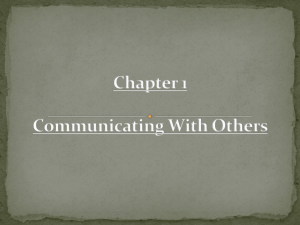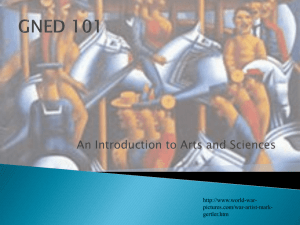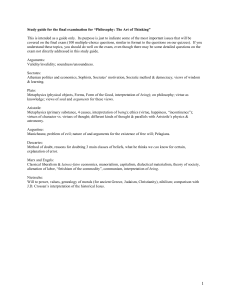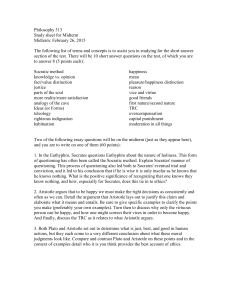Reflective Essay
advertisement
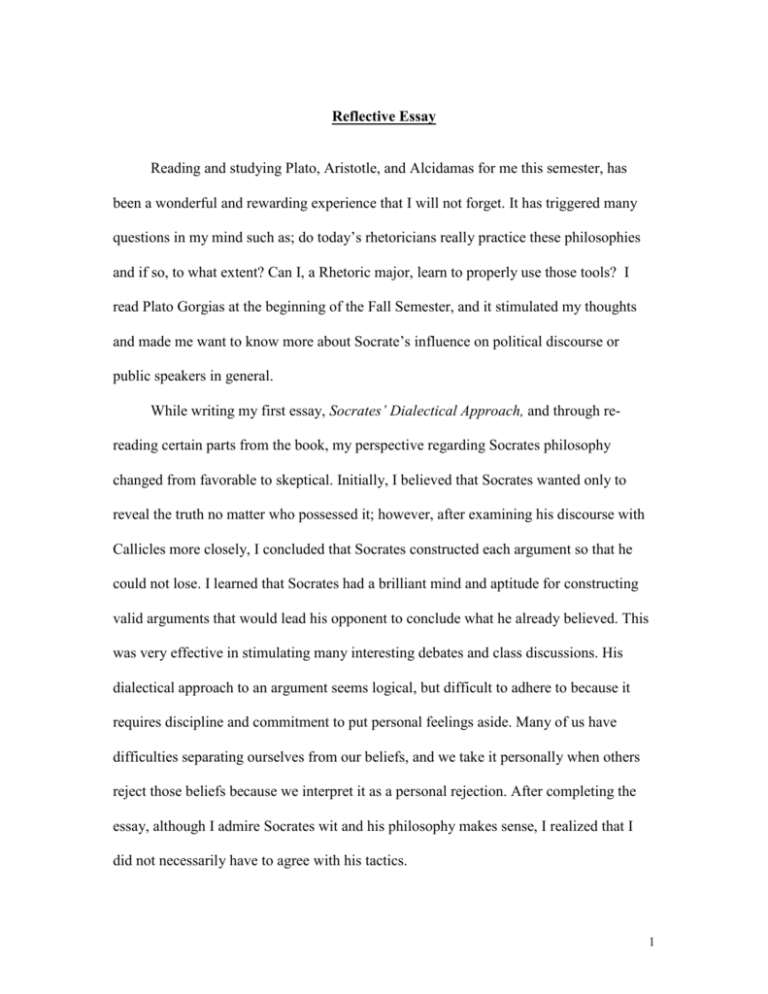
Reflective Essay Reading and studying Plato, Aristotle, and Alcidamas for me this semester, has been a wonderful and rewarding experience that I will not forget. It has triggered many questions in my mind such as; do today’s rhetoricians really practice these philosophies and if so, to what extent? Can I, a Rhetoric major, learn to properly use those tools? I read Plato Gorgias at the beginning of the Fall Semester, and it stimulated my thoughts and made me want to know more about Socrate’s influence on political discourse or public speakers in general. While writing my first essay, Socrates’ Dialectical Approach, and through rereading certain parts from the book, my perspective regarding Socrates philosophy changed from favorable to skeptical. Initially, I believed that Socrates wanted only to reveal the truth no matter who possessed it; however, after examining his discourse with Callicles more closely, I concluded that Socrates constructed each argument so that he could not lose. I learned that Socrates had a brilliant mind and aptitude for constructing valid arguments that would lead his opponent to conclude what he already believed. This was very effective in stimulating many interesting debates and class discussions. His dialectical approach to an argument seems logical, but difficult to adhere to because it requires discipline and commitment to put personal feelings aside. Many of us have difficulties separating ourselves from our beliefs, and we take it personally when others reject those beliefs because we interpret it as a personal rejection. After completing the essay, although I admire Socrates wit and his philosophy makes sense, I realized that I did not necessarily have to agree with his tactics. 1 Writing an essay on Aristotle’s rhetoric about the deliberative process gave me a broader perspective regarding persuasion. He attaches an importance to anticipating both sides of an argument so that one can eliminate any refutations that might occur. He also advocates familiarity with the audience and their ideals indicating that by knowing these the speaker can use them to persuade. His careful selected and strategic use of rhetoric has become a model for many individuals that engage and rely on persuasive arguments. I learned that Plato was Aristotle’s mentor, and knowing this helped me to understand why their ideas were so closely related. For example, both believe that the rhetorician has a duty to do and speak that, which is just. When I think about politicians today, I find that many of them do not follow Plato or Aristotle’s example where it concerns ethics. The essay titled, Writing vs. Speaking, provided a challenge for me because I believed Alcidamas’ when he argued that speechmaking had a greater value than writing. But because I am an English major, who has to write extensively, I felt the necessity to determine arguments to refute his philosophy, otherwise according to him, my goal to becoming a better writer would seem impossible. Finally, I know that further study and practice will enable me to learn how to properly apply the knowledge that I have gained. I could not have possibly learned all I need to know about any philosopher in only one semester, but it is up to me to add to my knowledge by reading more books. Taking a course in the History, Theory, and Practice of Argumentative Writing, has advanced me much farther along toward my educational goals. 2


